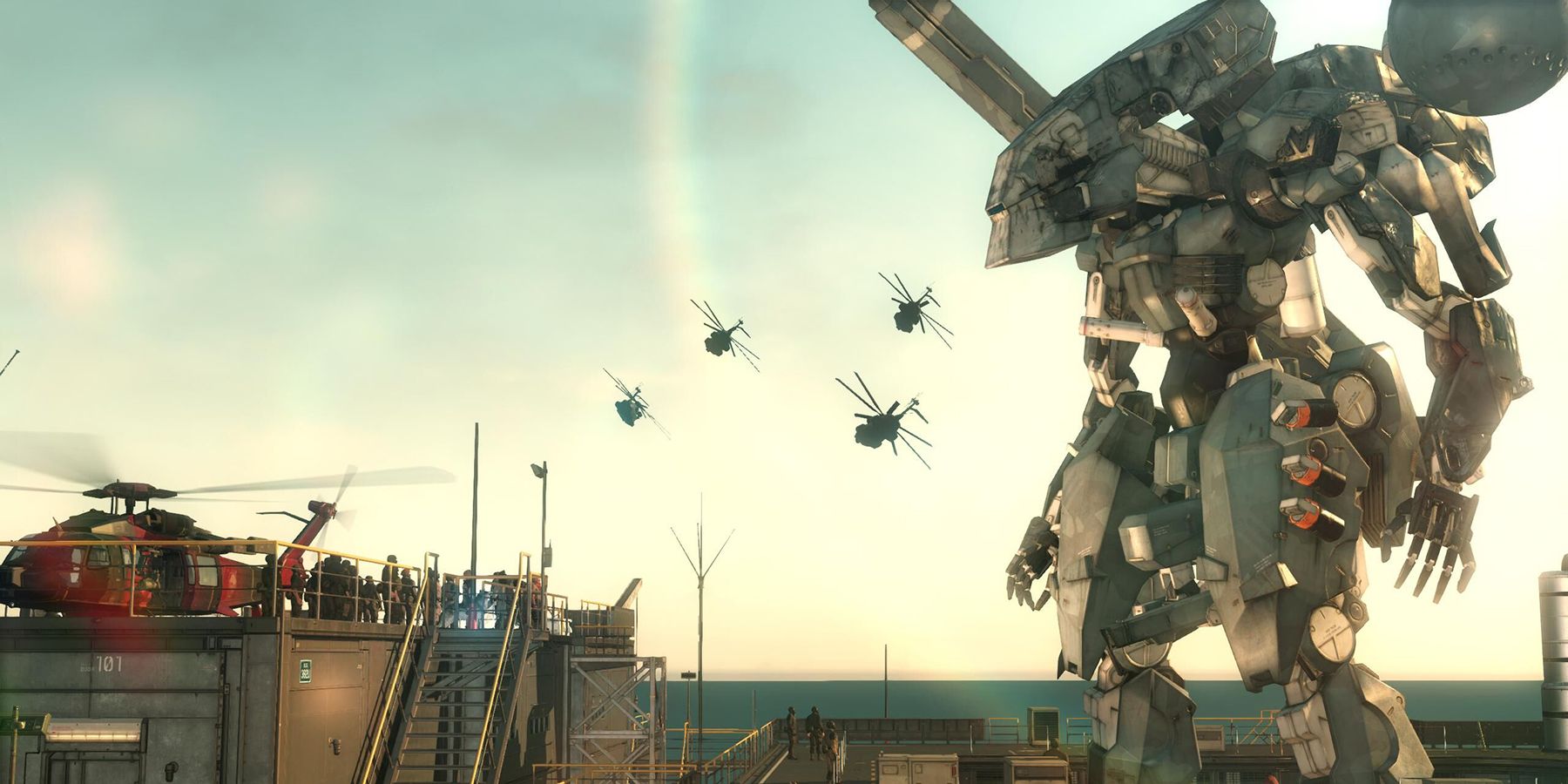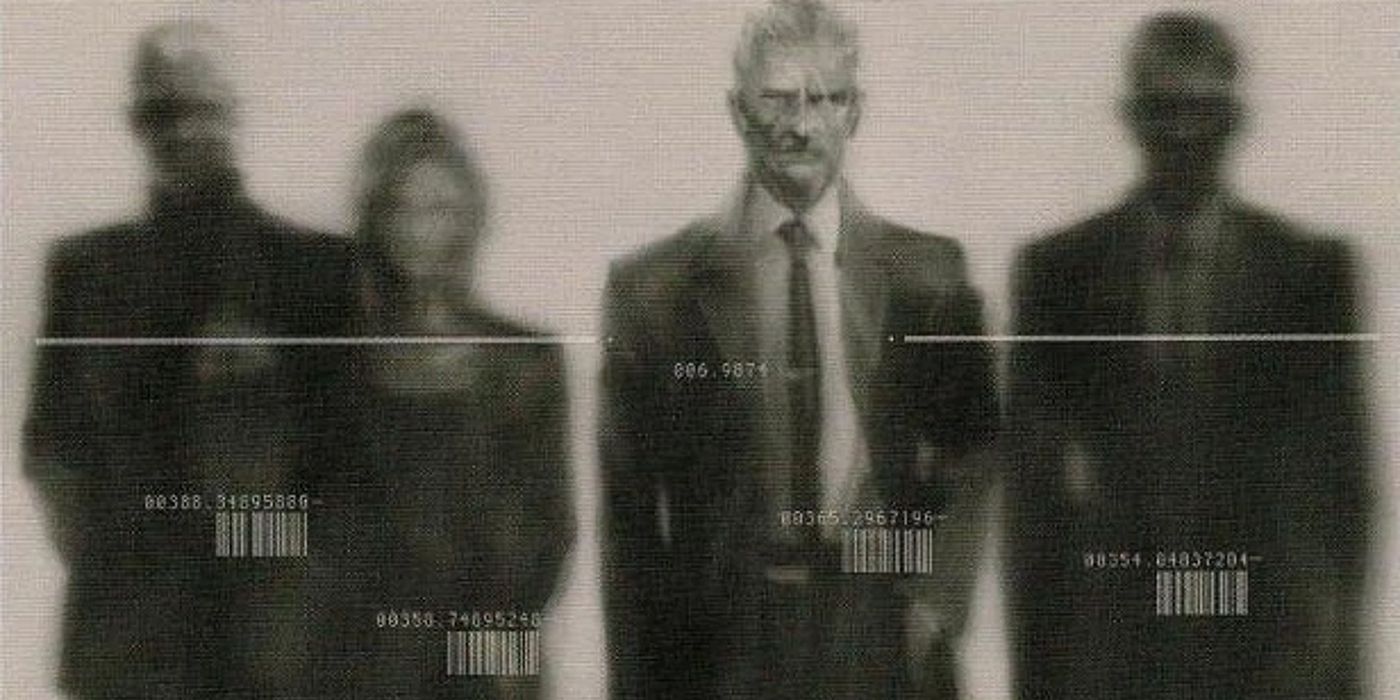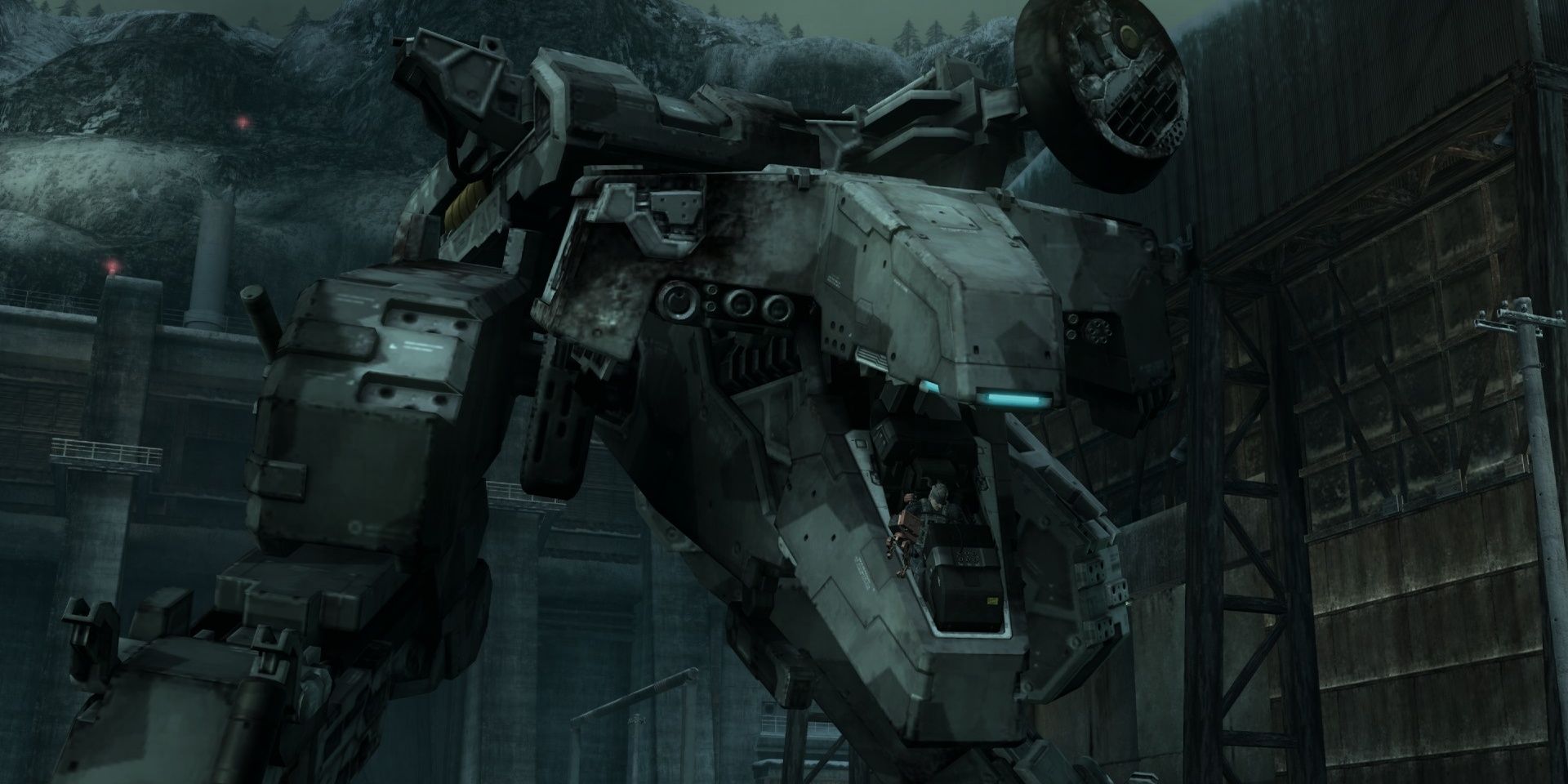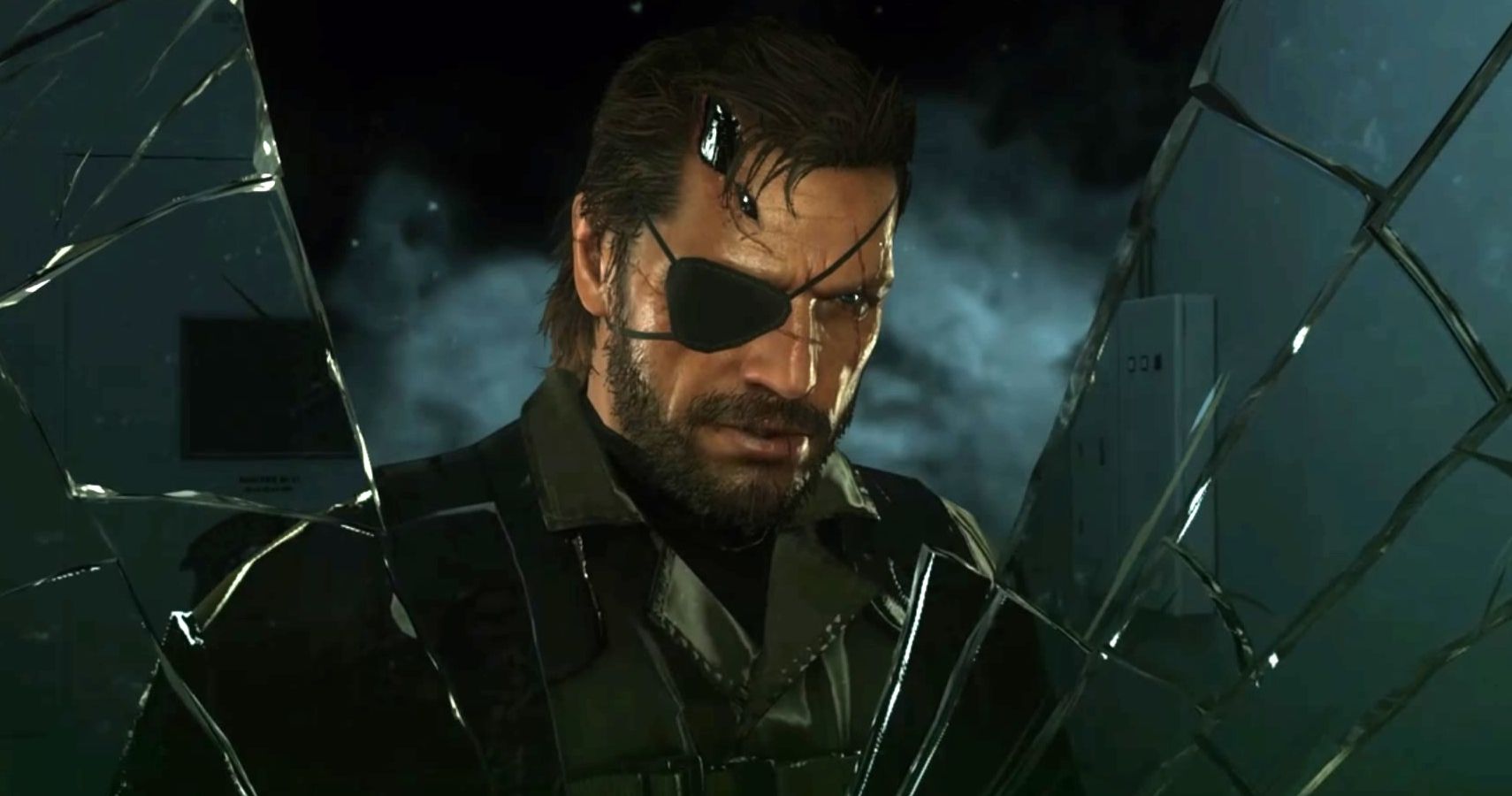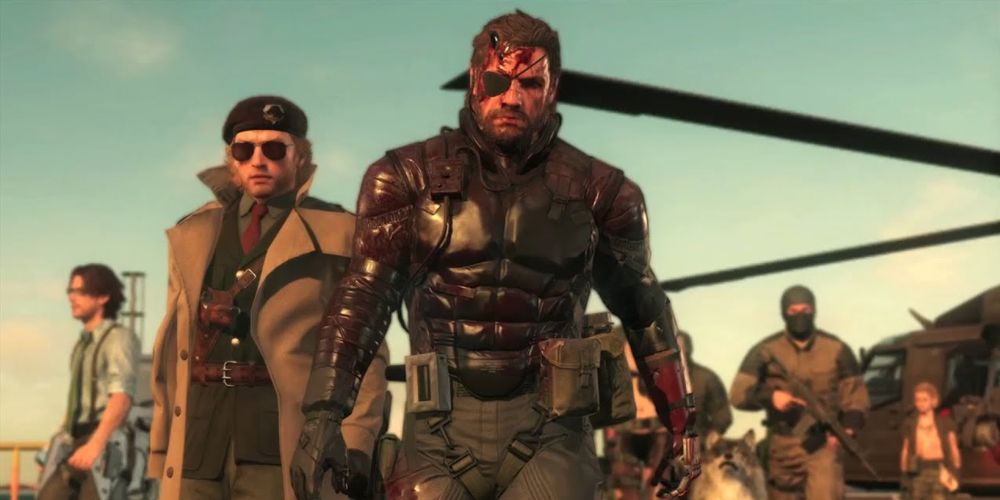Japan has a flair for bizarre combinations, especially in video games. Mario is an Italian plumber from Brooklyn tasked with safeguarding the Mushroom Kingdom against a giant turtle. Sonic is a blue hedgehog who runs fast fighting against a mad scientist. Metal Gear is a story about highly skilled soldiers specialized in infiltration whose trump card is hiding in a cardboard box.
Truth be told, that's probably the most condensed one-sentence summary possible of Metal Gear's absolutely mind-boggling storyline. After all, even Kojima didn't have the entire plot in his head when the first Metal Gear was released in 1987. On the surface level, Metal Gear tells the story about Big Boss, Venom Snake, and Solid Snake. On a deeper level, it's a story about soldiers trying to fight for their own sake. However, on a thematic level, somewhat ironically, it's a stark warning against nuclear weapons and war itself.
Metal Gear Was Always Political
The story of Metal Gear closely follows real history: All the major canon historical events of the game, whether it's the World Wars, the Manhattan Project, or the Cold War that nuclear proliferation brought about, take place in the timeline. Despite fears of nuclear annihilation, the only country that has ever been on the receiving end of such a weapon is Japan. It's hard to understate how much the ensuing tragedy scarred the psyche of that country. Even to this day, such an event heavily influences the beliefs of Japanese people, hence their politics and their media.
The Metal Gear series was always political, but it was never a singular condemnation of America, the Soviet Union, mercenaries, secret societies, or even imperialism. Metal Gear is about what all those different factions are constantly vying for: Nuclear weapons. They each have their own reasons to get a hold of weapons of mass destruction, but the struggle over them is the thread that brings the entire cast of characters together at the end of the day.
The Duality Of A Nuclear Mech
With nuclear armaments playing a central role in Metal Gear, the way they are portrayed in the games is all the more interesting. In fact, it's the namesake of the entire series: Metal Gear. Every game, whichever character is the protagonist, the player is always trying to stop an antagonist from destroying the entire planet with one of these doomsday machines. Whether the Shagohod from Metal Gear Solid 3: Snake Eater, or the Sahelanthropus from Metal Gear Solid 5: Phantom Pain, they are designed to be the most prominent threat.
However, the concept of those dangerous world-ending Metal Gears is quite frankly, absolutely ridiculous. They are literally walking bipedal mechs carrying nuclear weapons. They keep becoming more and more over the top as the series progresses. It's a not-so-subtle jab at the entire idea of having world-ending weapons. After all, it doesn't matter how laughable it is that a Metal Gear looks like a Gundam, because if it launches those nukes, the apocalypse will come all the same.
It Was All A Smokescreen
In fact, the concept of duality is often brought up in Metal Gear. Metal Gear Solid 2: Sons Of Liberty was harshly criticized at its time of release for its constant cycling between the protagonists; cool action hero Solid Snake, and whiny annoying Raiden. Big Boss, who left the US Army for feeling used, then used one of his own followers as a body double to create his own legend, and sent countless soldiers to their death for the sake of his grand design. The player can even choose the type of Venom Snake they want to play in Metal Gear Solid 5; whether a cold and psychopathic killer, or a kind and merciful savior.
It's all a smokescreen. The duality is only an illusion. The truth is that anyone can become Big Boss, or Solid Snake with enough training, or even someone like Raiden. It doesn't matter who they are because their only purpose is to fight a meaningless war on a controlled battlefield. The nuclear weapons that were supposed to be deterrents for war eventually become the very tools that control war instead.
A War Without End
When playing Metal Gear Solid, players have a certain expectation of how the story would go. When Metal Gear Solid 5 was released, it attracted a lot of criticism as a seemingly unfinished game. Fans were upset at Konami for apparently hampering Kojima's work, and ruining the potentially last installment of the series. Of course, Kojima and Konami had a less than friendly falling out, but Kojima did debunk the theory of the unfinished game once he was legally in the clear. Despite this, there is a reason why Phantom Pain was lambasted as such, and it has a lot to do with its second part.
Metal Gear Solid 5: Phantom Pain is divided into Chapter 1, "Revenge," and Chapter 2, "Race." In Revenge, the player plays what is expected of a Metal Gear Solid game. After being handed a blow by Cipher in Peace Walker, Big Boss returns for some payback. In his journey, he grows his army, and encounters a colorful cast of characters who join him on his trek. At the end of the chapter, they defeat Cipher, and claim Salehanthropus as their prized jewel. Had the story ended there, it would've been acclaimed as the seemingly perfect culmination of a legendary franchise.
Of course, Chapter 2 sees all of that work come undone. Mission 41 is aptly named "Proxy War Without End" because that's exactly what it is. The crew of Mother Base becomes paranoid about a spy infiltrating their ranks, the companions who joined Big Boss are either exiled or die, and to top it all off, the army of child soldiers steals the Salehanthropus. The final plot twist of the game reveals that Venom Snake was only a body double for the real Big Boss. It's that same Venom Snake who is the final boss of the very first Metal Gear game from 1987. The cycle continues.
Beneath all the memes, the fourth wall breaking, and cryptic tapes, the Metal Gear franchise makes a strong case against nuclear war, as it would lead to the end of humanity, but also against nuclear weapons themselves for all the folly that ensues. Big Boss never had the chance to hear Major Zero's final message when he visited him at the hospital, which ultimately led to the creation of the Patriot system. It would be wise for those who have heard it not to make the same mistake, and plunge the world into the dystopia that is the world of Metal Gear.

